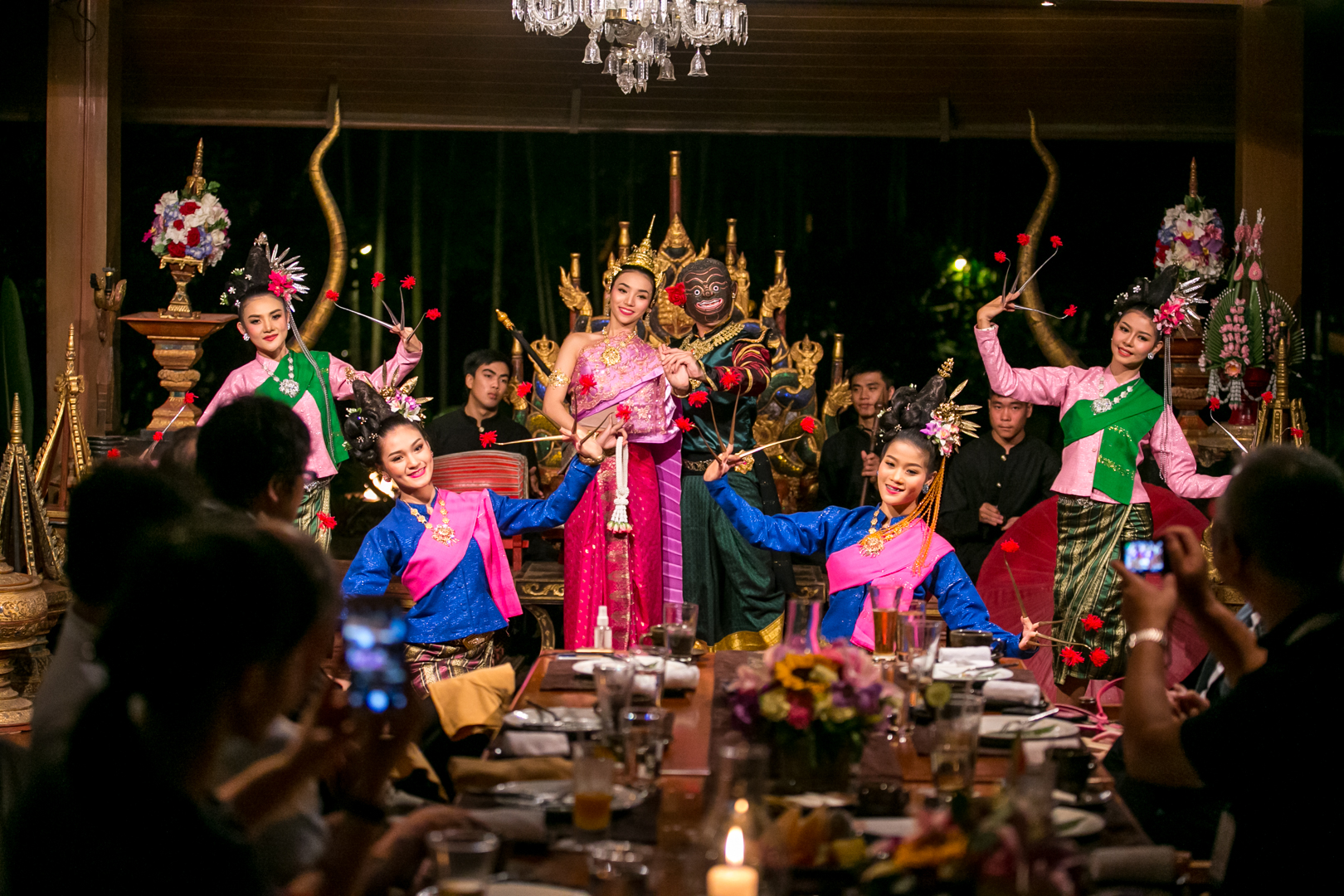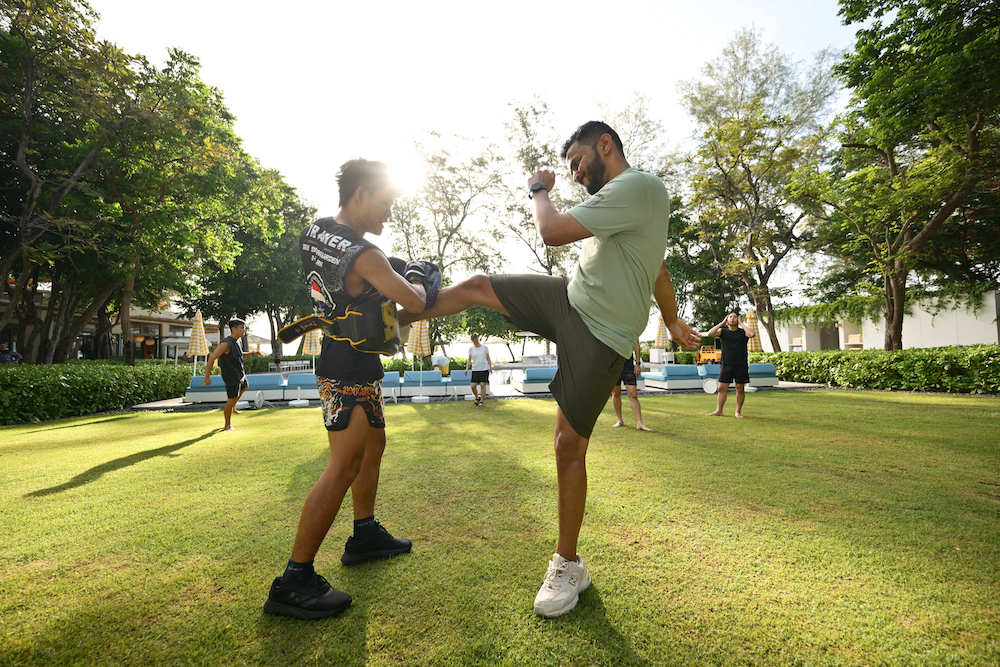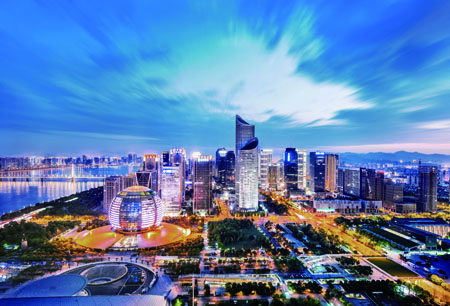
Hangzhou is a city of giants, both literally and metaphorically. Along with the fascinating modern architecture and the storied West Lake beauty spot, it is the hometown of China’s richest man, Jack Ma – the brains behind e-commerce giant Alibaba.
Other tech behemoths are headquartered in the city, such as China’s largest video surveillance firm Hikvision, and its second-biggest video game publisher, NetEase.
Behind this modern exterior sits one of China’s oldest gems, a city that has often been referred to as “Paradise on Earth”. Parks and temples are scattered all around West Lake, while others have since been converted, such as the Four Seasons, which opened in 2010.
Hangzhou’s MICE appeal is far from just lakes, temples and areas of green expanse, however, and if there’s one thing Hangzhou is not when it comes to its MICE potential, it’s lacking in ambition.
In 2016, the city hosted the G20 Hangzhou summit, the first time the annual gathering had been held in China. And the legacy from this event is proving to be been significant.
“According to incomplete statistics, after the G20 summit… the number of various conferences held in Hangzhou has increased significantly, including many international conferences,” said a representative from the Hangzhou Tourism Commission. “There are more than 10 large-scale conferences with 3,000 participants that have been held this year.”
Among these are the Meeting of the Asian-Oceanian Standard-Setters Group (AOSSG), which took place in November 2017, while still to come is the International Congress on Environmental Geotechnics (ICEG) in October 2018. Add to this sporting events such as the 14th FINA Short Course World Championships (2018) and the 19th Asian Games (2022), and Hangzhou is moving up there with the world’s events cities.
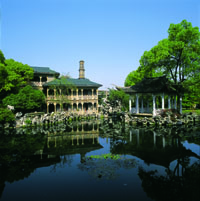 Hotels
Hotels
Among the most notable hotels in the Zhejiang province capital is the Intercontinental Hangzhou – one of the sites for the B20 meetings that took place on the sidelines of the G20 summit. Built in 2010 in the city’s Qianjiang central business district, the massive golden globe design is intended to resemble the sun.
The hotel forms part of an integrated complex that includes the International Conference Centre, a shopping centre and a grand theatre. Across the road, and viewable from many of its rooms, is the nightly light show that takes place within the district. Meanwhile, inside the hotel itself, 384 rooms are available for groups, as are 6,000 sqm of events space – including the 1,780 sqm pillarless Grand Ballroom, designed in contrast to the exterior of the hotel to resemble the moon.
“Using our hotel as a central base, we’ve also created what we call a ‘Golden Globe Alliance’, where a few of our neighbouring hotels can share experience and resources when it comes to exhibitions,” says Frankson Lee, general manager of the Intercontinental Hangzhou. Not all of the hotels in the city have been as involved in the G20 Summit, however. The Hangzhou Marriott Hotel Qianjiang, for instance, opened in October 2016, mere days before the summit, while the Park Hyatt Hangzhou opened the following month.
The Hangzhou Marriott Hotel Qianjiang is a 348-room property with upwards of 1,850 sqm of events space, including a 700 sqm ballroom, and a 300 sqm lawn terrace by the river that can accommodate up to 200 people.
The Park Hyatt Hangzhou, meanwhile, is the second Hyatt property located in the city after the Hyatt Regency Hangzhou, and like the Intercontinental and Marriott is located in downtown Qianjiang. While smaller than the previous two properties – the hotel offers 237 guestrooms including 13 suites – the Park Hyatt’s offerings differ noticeably, particularly with its events spaces that are located on the upper floors of the hotel. These offer great views of the surrounding area – the hotel’s Park Salon claims the title for highest events space in Hangzhou – while The Residences offer a more intimate environment. As for the city’s first Hyatt property, the Hyatt Regency Hangzhou, this is being transformed into Hangzhou’s first Grand Hyatt, which is expected to open in 2018.
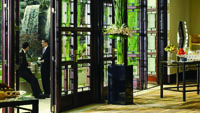 Corporate groups looking for more traditional settings can try the Four Seasons Hangzhou which, despite opening in 2010, resembles an elaborate traditional Chinese garden complex, complete with its own courtyards and small ponds. Situated by the West Lake in Zhejiang district, the hotel is more of a boutique offering with just 78 guestrooms and suites that start at 63 sqm, but with 11 private dining locations.
Corporate groups looking for more traditional settings can try the Four Seasons Hangzhou which, despite opening in 2010, resembles an elaborate traditional Chinese garden complex, complete with its own courtyards and small ponds. Situated by the West Lake in Zhejiang district, the hotel is more of a boutique offering with just 78 guestrooms and suites that start at 63 sqm, but with 11 private dining locations.
Among the newest hotels to enter Hangzhou, however, is the Hilton Garden Inn Hangzhou Lu’niao, the hotelier’s second property in the city after the DoubleTree by Hilton Hotel Hangzhou East. The new Garden Inn opened its doors two months ago, about 45km from the city centre within Lu’niao Town. Along with its 230 guestrooms, the hotel has 720 sqm of events space, including five meeting rooms and a 365 sqm banquet hall.
Also in the pipeline for the city are new Conrad Hotels and Jumeirah Group properties.
Venues
Hangzhou International Expo Centre is the city’s major conference facility. It’s where the main G20 meetings were held, and several of the key rooms have been kept as they were, available for visitors to see as attractions in their own right.
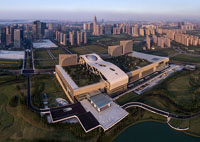 The venue (right) features a rooftop that is perhaps the centre’s most notable offering for business events. Occupying 65,000 sqm rooftop and also known as the “Sky Garden”, it houses a vast green garden replete with traditional structures and architecture, taking the concept of offering a unique, local experience to a whole new level.
The venue (right) features a rooftop that is perhaps the centre’s most notable offering for business events. Occupying 65,000 sqm rooftop and also known as the “Sky Garden”, it houses a vast green garden replete with traditional structures and architecture, taking the concept of offering a unique, local experience to a whole new level.
Separated into two main “courtyards”, the rooftop is a great spot for a cocktail event, with views of the city. A large, spherical structure at one end of the roof also offers a great backdrop to an outdoor event.
The city is also undergoing significant infrastructure development in the form of clusters. “With the rapid development of Hangzhou’s MICE sector, the quality of services and infrastructure has been
greatly improved in the form of conference venues and hotel clusters,” according to the Hangzhou Tourism Commission.
“The clusters include Xiaoshan District, West Lake Scenic Area, Downtown Qianjiang CBD, Qiandao Lake Scenic Area and others, all of which have the ability to undertake international large-scale conferences independently.”
Another exhibition centre may also be on the way. “Since the G20 you can see that there’s been a lot of development in the MICE sector,” says the Intercontinental Hangzhou’s Lee. “Due to this increase, our owning company has developed a sub-arm to oversee the exhibition and convention development.
“They are intending to have another exhibition centre, perhaps slightly smaller than the current exhibition centre, located around this area – probably near to the railway station. A timeframe hasn’t been set yet, but if it does happen I’m sure it will happen very fast, maybe within the next three to five years.”
Visible from the current Hangzhou International Expo Center is another development. Hangzhou Sports Park is set to open ahead of the 2022 Asian Games and covers an area of about 37,000 sqm, which will make it one of the largest facilities of its type in China. The park comprises two main buildings – the first, the main stadium, opened in 2017 and resembles a wreath of folded petals and has a capacity of some 80,000, while the second, a tennis stadium, will be able to seat about 10,000.
Group options
Corporate groups visiting Hangzhou will find that many of the team-bonding activities are based around West Lake. For starters, groups can rent the bright red public bicycles and cycle around the edges of the lake to get a feel for the scenery.
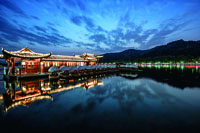 Those looking to get out onto the water itself also have a number of options. Cruises on the West Lake (left) are available aboard the same slow-moving Chinese-style vessel that took dignitaries from the G20 Summit on outings. As groups circle the lake, musicians in traditional qipao dresses play music onboard using Chinese instruments such as the guzhong and erhu – a fitting accompaniment to the natural scenery that has long been popular with Chinese poets and scholars.
Those looking to get out onto the water itself also have a number of options. Cruises on the West Lake (left) are available aboard the same slow-moving Chinese-style vessel that took dignitaries from the G20 Summit on outings. As groups circle the lake, musicians in traditional qipao dresses play music onboard using Chinese instruments such as the guzhong and erhu – a fitting accompaniment to the natural scenery that has long been popular with Chinese poets and scholars.
Whilst onboard, groups can also take part in traditional activities such as fan painting, led by a master painter who instructs delegates in the proper techniques. These provide nice keepsakes for delegates, who are able to take home their own fans that they’ve personally hand-painted.
Another option for groups looking to get onto the water is sailing. One organiser, the Aofan Sailing Club, doesn’t offer excursions onto the West Lake (participants instead head out onto Xianghu Lake, another body of water further to the south from the city), however it nonetheless provides both two-person sailing and kayaking for visitors, with each participant getting their own personal instructor.
Even if groups do not go out onto the water itself, there are impressive incentive options for corporate groups that take place at the lake. Most Memorable is Hangzhou is a performance directed by Zhang Yimou, the same man who directed the opening ceremony for the 2008 Beijing Olympics. This is a spectacle of light and music that puts even the most elaborate Broadway or West End performance to shame.
Characters walk on platforms submerged centimetres beneath the water, giving them the appearance of walking across its surface, while massive props, from huge traditional fans with digital projections to immense light riggings, rise out from beneath the water throughout the performance.

Longjing tea
For groups looking to explore the more historic side of the city, two options stand out. The first is tea picking and bun making at Longjing Village, the second is a tour of the China National Silk Museum, complete with classes showing delegates how to weave on traditional silk looms.
If you’re lucky, you might even be able to organise a behind-the-scenes tour of the museum’s research facility, where analysis and restoration of centuries-old textiles take place.

